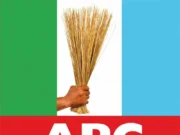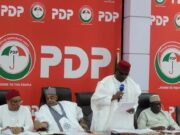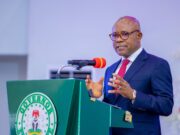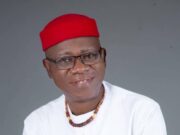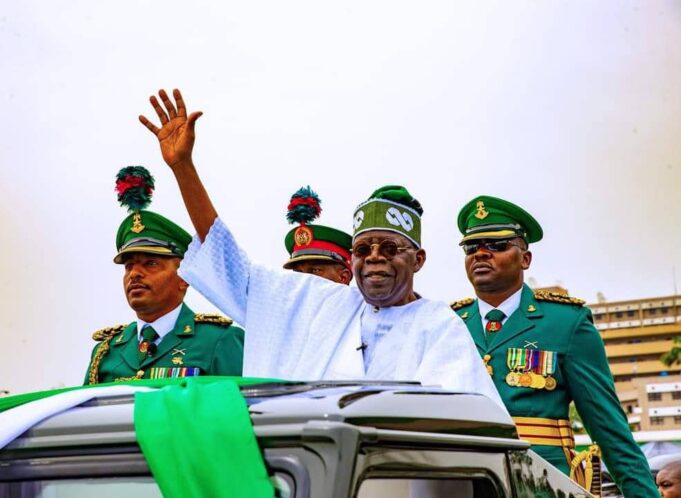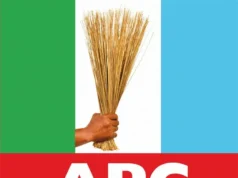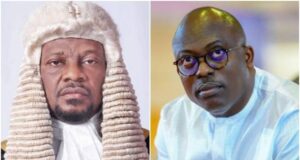Kola Ologbondiyan, former National Publicity Secretary of the Peoples Democratic Party (PDP), has spoken candidly about the current state of the party and the performance of President Bola Tinubu’s administration.
Ologbondiyan dismissed claims that the PDP is dead, acknowledging, however, that the party is currently “comatose” and ineffective.
He criticized the party’s leadership for allowing internal crises, such as contested congress outcomes and ongoing litigations, to undermine its strength as the leading opposition party.
According to him, while the PDP is not dead, it needs revitalization to regain its former prominence and relevance in Nigerian politics.
Ologbondiyan disagreed with those who argue that the PDP was not built to function as an opposition party.
He emphasized that political parties are formed to mobilize support, win elections, and govern, regardless of whether they are in power or not.
He argued that the PDP’s inability to function effectively as an opposition is due to leadership failures and a deviation from the core principles of fairness and equity established by the party’s founding members.
Reflecting on the PDP’s loss of power to the All Progressives Congress (APC) after 16 years in office, Ologbondiyan blamed leadership missteps within the party.
He pointed out that the PDP’s internal challenges, such as the handling of the party’s succession issues, led to its eventual downfall.
He highlighted the failure to respect the party’s constitution during leadership transitions, particularly after the resignation of former National Chairman Dr. Iyiorchia Ayu, as a significant factor in the party’s decline.
While acknowledging that some of the party’s founding fathers have distanced themselves from active partisan politics, Ologbondiyan stated that many continue to offer advice and support the party’s future.
He stressed the importance of re-engaging experienced party members and respecting the constitution to restore PDP’s strength.
Ologbondiyan also criticized PDP members serving in the APC government, such as former Rivers State Governor Nyesom Wike, who currently holds a ministerial position.
He argued that such contradictions harm the PDP’s prospects, as party members in government are naturally inclined to support the ruling APC, even if they retain their membership in the opposition.
On President Tinubu’s leadership, Ologbondiyan suggested that Tinubu’s tenure could be cut short, potentially making him a one-term president.
He pointed to rising economic challenges, hunger, insecurity, and corruption under the APC administration as signs that the current government may not last.
Ologbondiyan asserted that Nigerians have historically moved away from ineffective governments, citing the PDP’s loss of power in 2015 as an example of how voters may shift allegiance when dissatisfied with their leaders.
Ologbondiyan expressed confidence that Nigerians are not stuck with the APC and that change is possible, despite claims of state capture by the ruling elite.
He referenced past examples in Nigerian history where political outcomes defied expectations, suggesting that with the right leadership, the APC’s rule could be brought to an end in 2027.
Regarding President Tinubu’s economic policies, Ologbondiyan criticized the sudden removal of petrol subsidies and the floating of the Naira without adequate preparation.
He argued that these moves, which were introduced without proper consultation or safeguards, have caused significant hardship for Nigerians.
He also compared Tinubu’s administration unfavorably to that of former President Olusegun Obasanjo, who, when faced with similar issues, provided palliative measures to mitigate the effects of subsidy removal.
Ologbondiyan took issue with President Tinubu’s recent remarks, where he claimed Nigerians were living “fake lives” before his administration.
Ologbondiyan questioned the president’s hypocrisy, pointing out the lavish lifestyle of the government, including the purchase of a new presidential aircraft, while Nigerians struggle to afford basic needs.
He criticized the government for living extravagantly while imposing austerity measures on the general population.
On the controversy surrounding new tax bills, Ologbondiyan expressed concern over the ethnic undertones in the debate.
He pointed out that taxes, such as VAT, are paid by all Nigerians regardless of their ethnicity or location, and that introducing ethnic divisions into the discussion could be damaging for national unity.
Finally, Ologbondiyan dismissed the notion that Nigeria is “jinxed” when it comes to leadership.
He argued that the real issue is the failure to build strong institutions, which has allowed leaders to rule in ways that benefit themselves rather than the broader society.
He stressed the need for a governance system that prioritizes the welfare of the people over personal or party interests.



